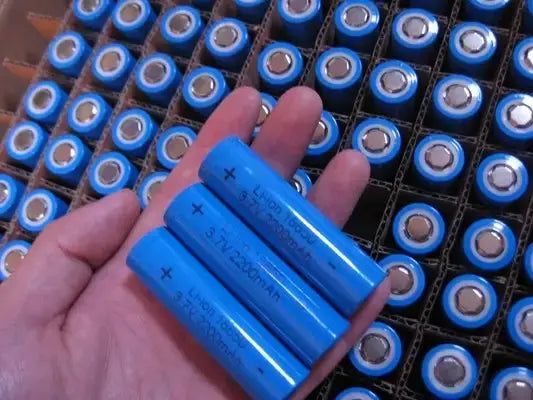Mon - Sat 09:00 -17:30
Mon - Sat 09:00 -17:30

Lithium-ion batteries are used in most aspects of our everyday lives from mobile phone to laptops etc .Lithium-ion batteries have also become very important in the field of electro mobility as it is now the battery of choice in most electric vehicles. Its high specific energy gives it an advantage over other batteries.
No ! There are different types of lithium-ion batteries and the main difference between them lies in their materials. Different kinds of lithium-ion batteries offer different features, safety, lifespan, cost, and performance.
An understanding of the key terms below will allow for a simpler and easier comparison and will help you to make decision on your next purchase .
Specific power:
It's the ability to deliver a high current and indicates loading capability.let we try to make it more simple for you ! pouring of bottled water in a glass is a perfect analogy of the relationship between specific power and specific energy
The water in the bottle can be thought of as specific energy. Pouring the water at a slow rate doesn’t provide enough force (low specific power) but the water lasts longer in the bottle (high specific energy). On the other hand, if we pour the water out at a faster rate it provides a greater impact (high specific power). However, the water wouldn’t last very long in the bottle ( low specific energy)

Performance: This measures how well the battery works over a wide range of temperatures. Most batteries are sensitive to heat and cold and require climate control. Heat reduces life, and cold lowers performance temporarily.
Lifespan: This reflects cycle life and longevity and is related to factors such as temperature, depth of discharge, and load. Cold climates accelerate capacity loss. A+ Grade lithium-ion batteries also usually have a advance battery management system fitted that limits the cycle life.
Safety: This relates to factors such as the thermal stability of the materials used in the batteries. The materials should have the ability to sustain high temperatures before becoming unstable. Instability can lead to thermal runaway in which flaming gases are vented.
Cost: Demand for electric vehicles are increasing day by day and Competition is the rivalry between companies selling electric scooters with the goal of achieving maximum revenue and profit at the same time keeping cost low.Cost of lithium-ion batteries installed in scooters is one of the main contributor towards the cost of the scooter. Hence to keep the cost low for the scooter low quality batteries has been installed . From our research of the market most of the electric scooter selling in market are fitted with B grading batteries.
Now that we have an understanding of the major battery characteristics, we will use them as the basis for the comparison of our lithium-ion batteries grading.
The table below provides a simple comparison.The characteristics are rated as either high, moderate, or low.
It is important to note that the grading of lithium-ion batteries are compared relative to one another
| GRADING | SPECIFIC POWER | PERFORMANCE | LIFE SPAN * |
SAFETY |
COST |
| A + | High | High | ~ 2 Years |
High |
High |
| A | High | Medium | ~8 months - 14 months |
Medium |
Moderate |
| B | Low | Low | ~ 4 months 6 months |
Medium |
Low |
* Life span this factor is calculated based on that user charge and discharge every day
A+ graded battery offers high safety, high performance, and a high lifespan which are very important features every battery should have .The only major disadvantage of A+ graded battery as compared to the other lithium-ion batteries is its extremely high cost. Another important feature of this battery worthy of mention is its remarkably fast recharge time.
If you’ve found this blog informative, why not join the AOVOFIX Club to receive more news, insights and exclusive offers.
This content is accurate and true to the best of the author’s knowledge